FOR SAFE USE OF YOUR CAMERA
Care to be Taken During Handling
Contents of the Operating Manual
Checking the Contents of the Package
Names of Parts
Names of Operating Parts
Getting Started
Attaching the Strap
Powering the Camera
Installing the Battery
Removing the Battery
Charging the Battery
Using the AC Adapter (optional)
Installing the SD Memory Card
Image Size and Quality
Initial Settings
Setting the Display Language
Setting the Date and Time
Quick Start
Taking Still Pictures
Playing Back Still Pictures
Playing Back an Image
Playing Back the Previous or Next Image
Rotating the Displayed Image
Common Operations
Turning the Camera On and Off
Playback Mode
Voice Recording Mode
Using the Button Functions
Capture Mode
Playback Mode
Voice Recording Mode
Setting the Menus
How to Set the Menus
Menu List
Taking Pictures
Taking Pictures
Taking Pictures by the Simplest Procedure (Green Mode)
Setting the Functions (Program Mode)
Selecting the Picture Mode According to the Shooting Scene (Picture Mode)
Taking Pictures of Dark Scenes (Night Scene Mode)
Taking Movies (Movie Mode)
Taking Panorama Pictures (Panorama Assist Mode)
Taking Soft-Contoured Pictures (Soft Focus Mode)
Taking Pictures with Digital Filters (Digital Filter Mode)
Using Preset Function Settings (User Mode)
Taking Underwater Pictures (Marine Mode)
Taking 3D Pictures (3D Image Mode)
Using the Self-Timer
Using the Remote Control Unit (optional)
Continuous Shooting (Continuous Shooting Mode)
Using the Zoom to Change the Subject Size
Taking Time-lapse Movies
Setting the Shooting Functions
Changing the Mode
Selecting the Capture Mode
Displaying Shooting Information in Capture Mode
Selecting the Focus Mode
Selecting the Flash Mode
Selecting the Recorded Pixels
Selecting the Quality Level
Adjusting the White Balance
Changing the Focusing Area
Setting the Light Metering Range to Determine the Exposure
Setting the Sensitivity
Setting the Instant Review Time
Setting the Image Sharpness
Setting the Color Saturation
Setting the Image Contrast
Setting the Exposure (EV Compensation)
Saving the Settings
Saving the Menu Items (Memory)
Registering Functions in User Mode
Recording and Playback
Recording Sound (Voice Recording Mode)
Playing Back Sound
Adding a Voice Memo
Setting the Record Voice Memo to [Off]
Playback/Deleting/Editing
Playing Back Images
Playing Back Still Pictures
Zoom Display
Playing Back Movies
Displaying Shooting Information in Playback Mode
Nine Image Display
Slideshow
Deleting Images, Movies and Sound
Deleting a Single Image or Sound
Deleting All Images
Protecting Images and Sounds from Deletion (Protect)
Viewing Images on a TV
Playing Back an Image Using the Remote Control Unit (optional)
Setting the Printing Service (DPOF)
Printing Single Images
Printing All Images
Direct Printing Using PictBridge
Connecting the Camera to the Printer
Printing Single Images
Printing All Images
Printing Using the DPOF Settings
Disconnecting the Camera from the Printer
Editing Images
Changing the Image Size and Quality
Trimming Images
Copying Files
Settings
Camera Settings
Setting Up the Screen
Formatting an SD Memory Card or the Built-in Memory
Changing the Sound Settings
Changing the Date and Time
Setting the World Time
Changing the Display Language
Changing the Video Output Format
Changing the USB Connection Mode
Sleep Timeout
Setting Auto Power Off
Registering a Function (Custom Function)
Setting the QUICK Button
Resetting to Default Settings
Setting the Alarm
Checking the Alarm
Setting the Alarm
Turning the Alarm Off
Appendix
List of City Codes
Optional Accessories
Messages
Troubleshooting
Main Specifications
WARRANTY POLICY
Index
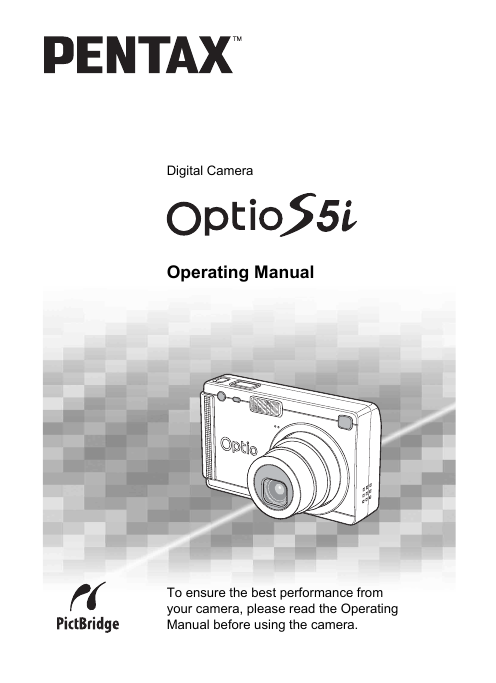
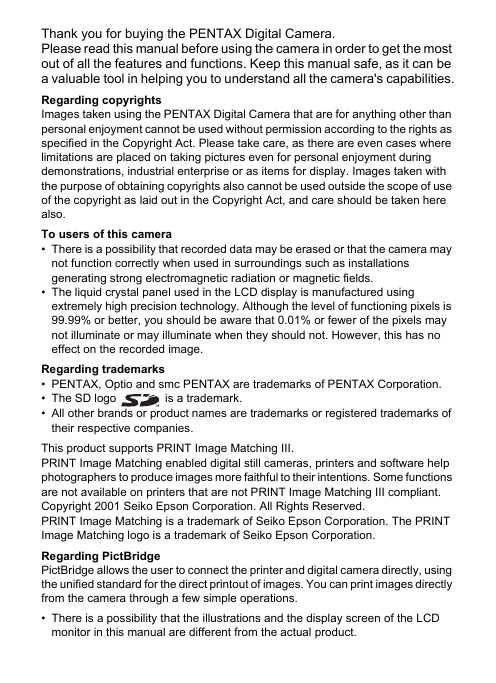


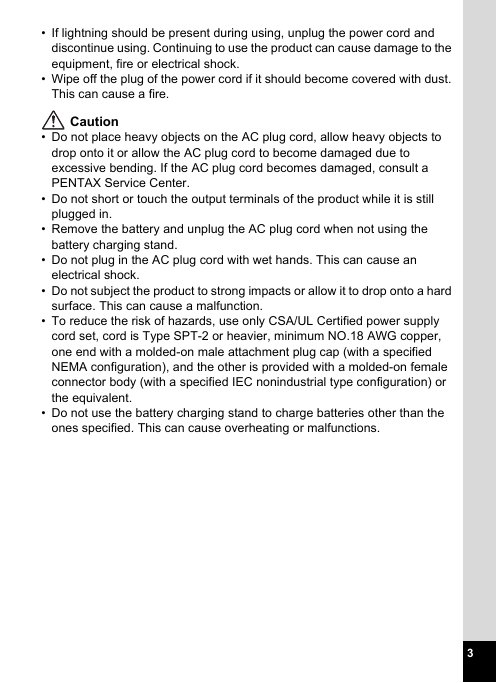
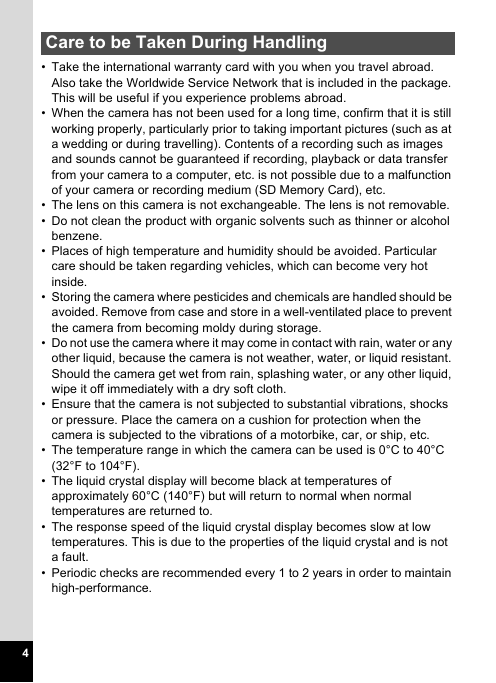
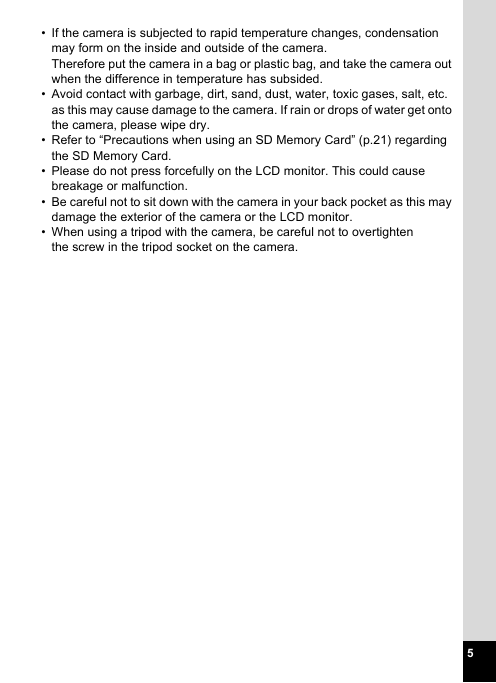









 2023年江西萍乡中考道德与法治真题及答案.doc
2023年江西萍乡中考道德与法治真题及答案.doc 2012年重庆南川中考生物真题及答案.doc
2012年重庆南川中考生物真题及答案.doc 2013年江西师范大学地理学综合及文艺理论基础考研真题.doc
2013年江西师范大学地理学综合及文艺理论基础考研真题.doc 2020年四川甘孜小升初语文真题及答案I卷.doc
2020年四川甘孜小升初语文真题及答案I卷.doc 2020年注册岩土工程师专业基础考试真题及答案.doc
2020年注册岩土工程师专业基础考试真题及答案.doc 2023-2024学年福建省厦门市九年级上学期数学月考试题及答案.doc
2023-2024学年福建省厦门市九年级上学期数学月考试题及答案.doc 2021-2022学年辽宁省沈阳市大东区九年级上学期语文期末试题及答案.doc
2021-2022学年辽宁省沈阳市大东区九年级上学期语文期末试题及答案.doc 2022-2023学年北京东城区初三第一学期物理期末试卷及答案.doc
2022-2023学年北京东城区初三第一学期物理期末试卷及答案.doc 2018上半年江西教师资格初中地理学科知识与教学能力真题及答案.doc
2018上半年江西教师资格初中地理学科知识与教学能力真题及答案.doc 2012年河北国家公务员申论考试真题及答案-省级.doc
2012年河北国家公务员申论考试真题及答案-省级.doc 2020-2021学年江苏省扬州市江都区邵樊片九年级上学期数学第一次质量检测试题及答案.doc
2020-2021学年江苏省扬州市江都区邵樊片九年级上学期数学第一次质量检测试题及答案.doc 2022下半年黑龙江教师资格证中学综合素质真题及答案.doc
2022下半年黑龙江教师资格证中学综合素质真题及答案.doc